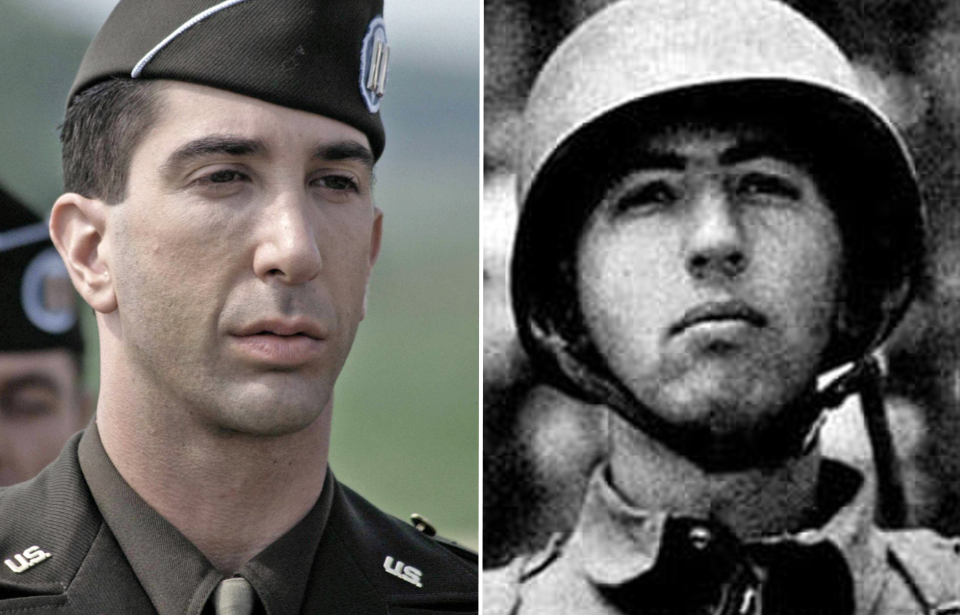Herbert Sobel is widely considered to be one of the most disliked characters in the war genre, whether that be in film or television. David Schwimmer’s portrayal of him in Band of Brothers (2001) shows a harsh and angry man who liked to take advantage of his position, often at the expense of his men. However, was Sobel actually like this in real life, or does the HBO miniseries present an erroneous depiction of him?
Herbert Sobel’s military beginnings
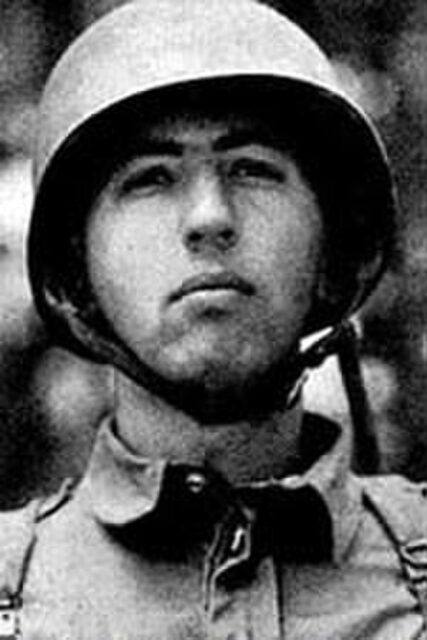
Herbert Sobel was born on January 26, 1912, in Chicago Illinois to a Jewish family. He got his start in the military early on as a student at the Culver Military Academy in Indiana, after which he studied business at the University of Illinois.
Shortly after his post-secondary graduation, Sobel enlisted in the US Army Reserve, receiving a commission as an officer. By 1937, he’d been promoted to lieutenant, and four years later was assigned to Camp Grant, on the outskirts of Rockford, Illinois.
A rocky relationship with the men of Easy Company
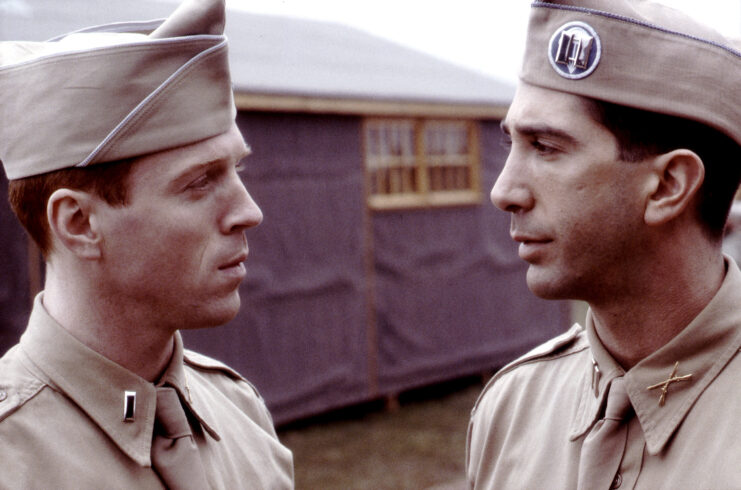
In 1942, following the US entry into World War II, Herbert Sobel volunteered to join Easy Company, 2nd Battalion, 506th Parachute Infantry Regiment, 101st Airborne Division, becoming its initial member and commander. Before long, he was commanding his men at Camp Toccoa, Georgia, where he immediately earned a bad reputation.
Known as the “Black Swan” and the “Devil in Jump Boots,” Sobel was particularly harsh with his men. Along with making them undergo tough and, sometimes, inhumane training (think the “Spaghetti run” scene in Band of Brothers), he was known to dole out punishments for the tiniest of infractions, such as having lint on one’s chevron.
By October 1943, Easy Company had been sent overseas to Aldbourne, England, to prepare for their deployment to France. This is where things came to a head. Sobel ordered then-1st Lt. Richard Winters to be court-martialed after the latter failed to perform a latrine inspection. As it turns out, there had been a miscommunication (possibly intentional on Sobel’s part), leading all but three non-commissioned officers (NCOs) to attempt a mass resignation in protest.
Col. Robert Sink, the regimental commander, got wind of what was going on, and after reprimanding the NCOs replaced Sobel with Lt. Thomas Meehan.
How effective was Herbet Sobel’s training?
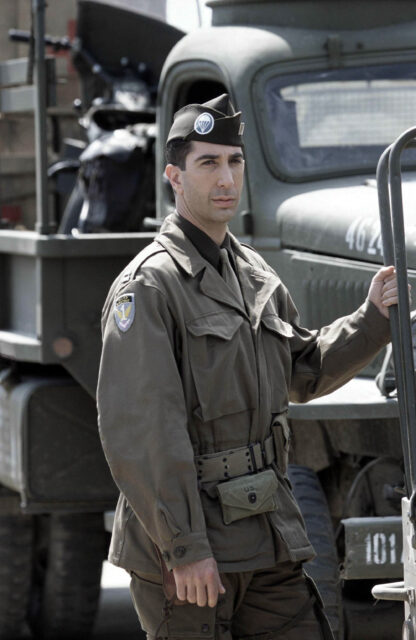
While the incident with Richard Winters was the final nail in the coffin for Herbert Sobel when it came to his command of Easy Company, it wasn’t the only reason for his change in position. He had trouble reading maps and a lack of spatial awareness. As well, he struggled to adapt to the ever-changing conditions of the battlefield, and his physicality wasn’t superb.
On a more personal level, he had no charisma and had failed to create the necessary bond with his men that would help him successfully lead them into battle.
That being said, Sobel’s training program helped prepare the men of Easy Company for what they’d experienced in Europe. After the Second World War, many, while acknowledging his less-than-great attitude, credited their former commander with ensuring they made it out of the conflict alive with several victories under their belt.
Winters once said regarding Sobel, “Easy Company would be the first and the best in everything it did. He expected Easy to lead the 506th in every measurable category,” while Tech. Sgt. Donald Malarkey remarked, “In a strange way, it kind of filled you with pride. You got the idea he was hardening us for tougher times to come.”
Herbert Sobel was assigned to an airborne school in Chilton Foliat
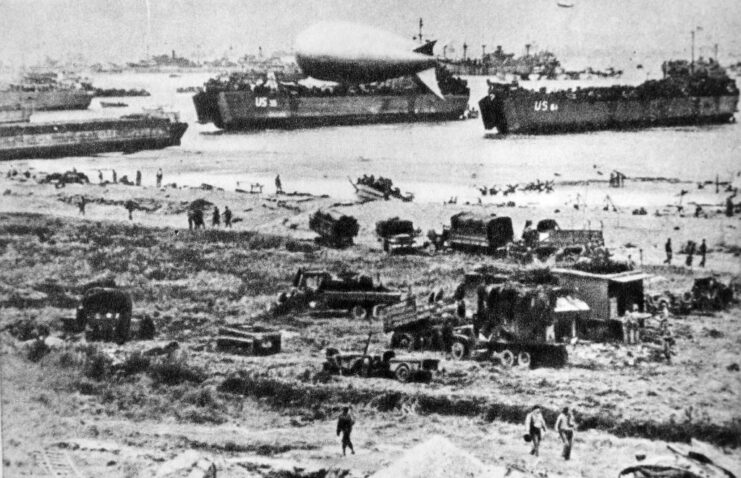
With him removed from his command of Easy Company, Herbert Sobel was assigned to lead an airborne school in Chilton Foliat, England, tasked with preparing the men for the upcoming Allied invasion of France. By the time D-Day rolled around on June 6, 1944, he and his staff had trained some 400 parachutists.
On D-Day, Sobel, by then named the commander of the 506th Parachute Infantry Regiment’s service company, parachuted into Normandy. Upon hitting land, he and four others took out a German machine gun nest with a grenade, before joining the rest of the 101st Airborne Division near Carentan.
Following his actions in Normandy, Sobel served as a staff officer with the 506th, receiving a promotion to logistics officer in March 1945. He remained in the US Army Reserve after World War II, eventually retiring with the rank of lieutenant colonel.
Post-war life and death
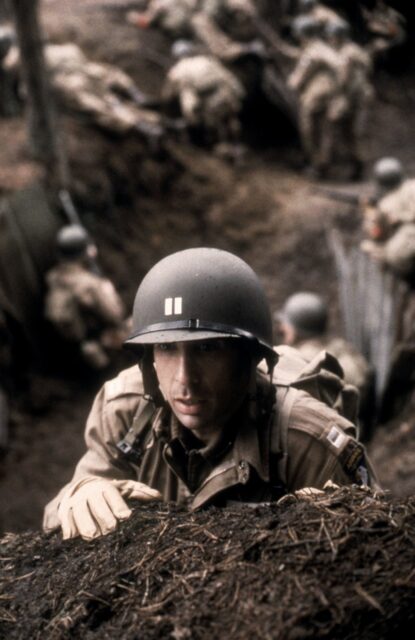
Herbert Sobel returned to Chicago, where he found work as a credit manager at a telephone equipment company. He married a woman named Rose, and the couple had three sons. A daughter was also born, but she died just a few days after birth.
In contrast to his time in the military, Sobel doted on his wife, making her breakfast each morning and pouring her a cocktail in the evening. While tough on his sons, he treated them well and put all of his savings into college funds, to ensure they could get adequate educations. Sadly, the Army veteran eventually became estranged from his family. Regarding one son, Michael, the two butted heads over their political beliefs.
In 1970, Sobel shot himself in the head with a small-caliber pistol. The attempt on his own life saw the bullet enter his left temple, severing his optic nerves. He was now completely blind. Speaking with FOX News, Michael remembered asking his mother why this had happened, saying, “I don’t know why he chose to do what he did. I asked my mom, but she wasn’t certain. She postulated that he thought he had cancer, but was unwilling to get tested for the disease.”
Following the incident, Sobel went to live in a poorly maintained VA assisted-living facility in Waukegan, Illinois. He died there on September 30, 1987, at the age of 75. According to his death certificate, the cause was malnutrition. No memorial service was held.
“Our contact with him had waned over the years. When he passed, we were unaware of the event,” Michael told FOX. “His sister attended to the details. It was days, perhaps even a week, after he died that his sister phoned my mom to let her know.”
Band of Brothers (2001)
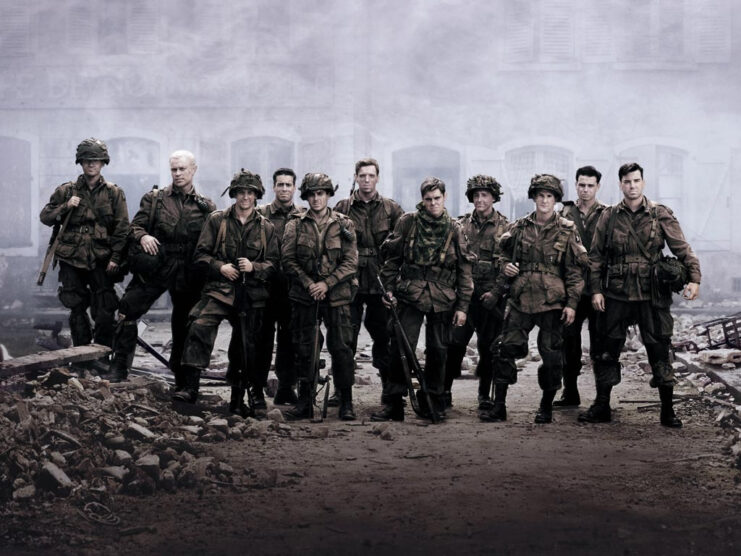
Herbert Sobel was among the Easy Company members covered in Stephen E. Ambrose’s book, Band of Brothers. The release was adapted into a miniseries by HBO in 2001, with David Schwimmer portraying the former Easy Company commander.
While the series portrays Sobel in a negative light, as aforementioned, many of his men credit him with helping them prepare for the realities of war. In Marcus Brotherton’s book, We Who Are Alive and Remain: Untold Stories from the Band of Brothers, the veterans who served under him spoke about the portrayal, echoing the comments of Donald Malarkey and Richard Winters.
More from us: ‘Band of Brothers’ Actors Who Later Became Big-Time Stars
Staff Sgt. Darrell “Shifty” Powers is quoted as saying, “He trained us well. Anything he’d ask you to do, he’d do it too – I always admired him for that,” while Cpl. Forrest Guth said, “In my estimation, Captain Sobel was good for us. He was tough and very much a disciplinarian. As far as I’m concerned, Sobel was the one who made E Company tough.”
